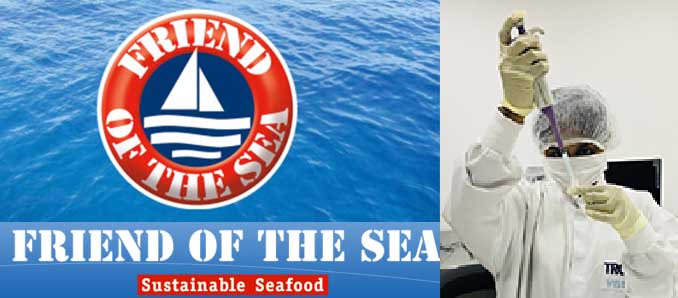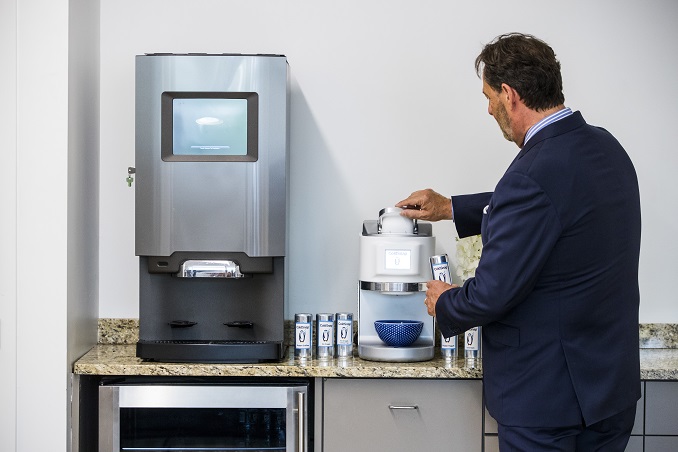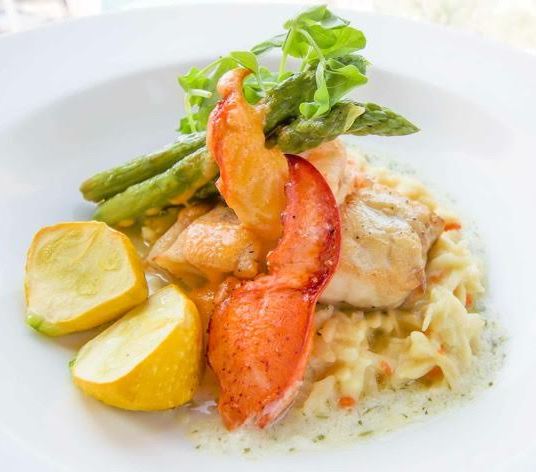 Sri Lanka’s main tuna processor Tropic Sri Lanka was awarded by Friend of the Sea for its commitment towards the conservation of yellowfin tuna in the Indian Ocean.
Sri Lanka’s main tuna processor Tropic Sri Lanka was awarded by Friend of the Sea for its commitment towards the conservation of yellowfin tuna in the Indian Ocean.
The Negombo-based company has recently launched an innovative project named “FCP@SEA” in collaboration with the Sri Lanka government and the private sector. The initiative aims to improve recruitment rates through assisted reproductive technology, thereby allowing the second generation of yellowfin tuna to return back to the ocean.
With a mission to increase the recruitment rates of yellowfin tuna stocks in the Indian Ocean, a team of experts from Tropic Sri Lanka engage in the viable extraction of eggs and sperm from commercially caught tuna carcasses and implement assisted fertilization at sea.
Sashini Fernando, Chief Sustainability Officer, explains: “We are now in the start-up phase of the project. We are carrying out age analysis on the catch and assessing sexual maturity at associated depths, studying the adjustment of fishing gear at various depths and training crews of nominated fishing vessels to maximize the effectiveness of harvesting viable reproductive organs of the fish caught.”
After the fertilization and primary maturation phase of the larvae, reaching approximately 2cm, the fingerlings would be released into the ocean to specific locations targeting suitable habitat with consideration of water quality parameters such as chlorophyll concentration, currents and temperature appropriate for their maturation.
Considering each spawning of yellowfin tuna releases about 8 to 10 million eggs per year, FCP@SEA has set the ambitious goal to contribute to the reproduction of 20 million individuals by 2020.
Tropic Sri Lanka’s attempt is not unique in its genre. In 2007, the Japanese government started a reproduction project of Bluefin tuna to support the increasing demand for sashimi. What differs is that assisted reproductive technology is applied to farming due to geo-morphological constraints, while in the case of Sri Lanka the same technique is conducted out of sea making of FCP@SEA a pioneering project.
“Our first contact with Tropic Sri Lanka dates back to 2010 when they first obtained Friend of the Sea certification for yellowfin, bigeye and swordfish tuna. With this award we acknowledge the great steps the company has taken in order to reach higher standards for environmental sustainability following Sri Lanka’s fish export ban to Europe in 2014,”comments Paolo Bray, Founder and Director of Friend of the Sea. “We really hope Tropic Sri Lanka and the national government will succeed with this innovative project in order to be replicated in other parts of the world.”
Friend of the Sea (FOS) is an international certification scheme for products from sustainable fisheries and aquaculture. in 10 years, around 900 companies in 100 countries have relied on FOS to assess the sustainable origin of their seafood. Audits are based on the best up-to-date data and run by accredited independent certification bodies. FOS also supports projects of preservation and protection of the environment and marine habitats. Moreover, it is constantly engaged in awareness campaigns to make more and more people conscious of the importance of consuming only certified sustainable seafood.








